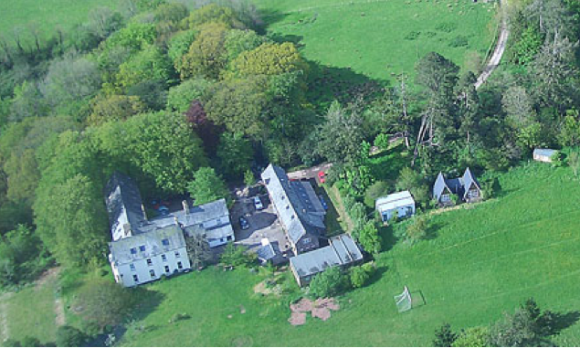Amber
Figen Gunes finds out about a residential project for young people with an ‘enviable’ success rate in turning lives around.//
Amber, a residential charity working with 17- to 30-year-old homeless and unemployed young people, has a unique style. It does not change people, people change when they come to Amber. Many, but not all, of the young people at Amber have a history of drugs or alcohol abuse and some will have been through the criminal justice system, including prison. Others are just demotivated young people needing somewhere to sort out their lives, to set goals and work towards achieving them away from negative peer pressure.
“Being unemployed gives people the time to really take stock of where they are, where they would like to be and how they are going to get there,” says Charles Drew, Chief Executive of Amber. “It’s amazing to see young people come to Amber lacking confidence and self-esteem, feeling hopeless, and seeing them a few months later leaving to go and start a new job, or travel to new parts of the world, full of confidence.”
The Amber program is individually tailored, and allows each person to progress at their own pace and to set their own goals. The average length of stay at one of the three Amber Centres is six months, but it could be longer. So long as people are moving forward and progressing then time is not an issue. However, it is not for the faint hearted. Residents, Amberteers, are expected to be up at 7.30am, and be in bed by 11.00pm. Amber employs no cooks, gardeners or cleaners and each person, with their fellow team members, will take it in turns to cook the meals for up to 40 people, keep an area of the house neat and tidy and clean, and help to maintain the grounds.
It is not all chores, and Amber recognise that it’s important that people have fun, make new friends, experience things that they may not otherwise have the chance to, such as sail a tall ship, go to Bulgaria to work for two weeks in an orphanage, go on Raleigh, spend some time on a canal boat and do projects to help the local community. Evenings are usually spent in the gym, or art room, playing football, or just relaxing by the fire playing board games or watching TV with friends.
“Amber has an enviable success rate,” claims Drew proudly, “we have an average of 80 per cent success: that is people into work, college or their own sustainable accommodation, from where they can start to look for work. This year 40 per cent have left us to go into work, which is encouraging considering the current financial climate,” he adds.
People can apply to go to Amber, or they can be referred by key workers, social workers, probation, some prisons, and even some judges see the advantage in sending people to Amber rather than prison. Everyone who goes to Amber has to want to be there, it is not a hostel or just a roof over someone’s head. There is no point being at Amber unless the individual wants to change and move forward.
“Peer pressure is very strong in Amber and if someone is not pulling their weight or avoiding taking responsibility, then other team members will tell them,” Drew says.
It is all about looking forward, not back, so there are no group therapies and counselling is kept to a minimum. Amber works because most people, prior to going to Amber, have been trying to get away from something: drugs, crime, abusive relationships, hard times, so the motivation is to move away. Once the person has achieved that, moved away from drugs, the motivation can stop, as there is no longer the need. If at that point that motivation is not replaced, the temptation is to return to the previous way of life. Amber replaces that motivation, with a forward-looking motivation, rather than trying to get away from something, Amberteers are working towards something, their goals. So they are less likely to fall into old habits.
Amber encourages Amberteers to set exciting goals, ones they can work towards that when they achieve them would be life changing. How exciting to be able to plan a ’round the world’ back-packing trip, plan where to go, how to travel. Look at the hurdles that come up, and overcome them. If by getting experience as a barman, or working to become a plumber gives the individual the tools and experience to achieve going round the world, then that’s a good starting point. Any job will help them to save up to do it.
“People, especially children, should be encouraged to dream, to imagine what they could be, what they could do, where they could go, and the sort of life they could have,” says Drew. “If you don’t have a dream you have no goal, no motivation, no desire, you just accept what comes along, and kick against the system. Amber is the place to really imagine what you could be, and then start to work towards achieving it.”














